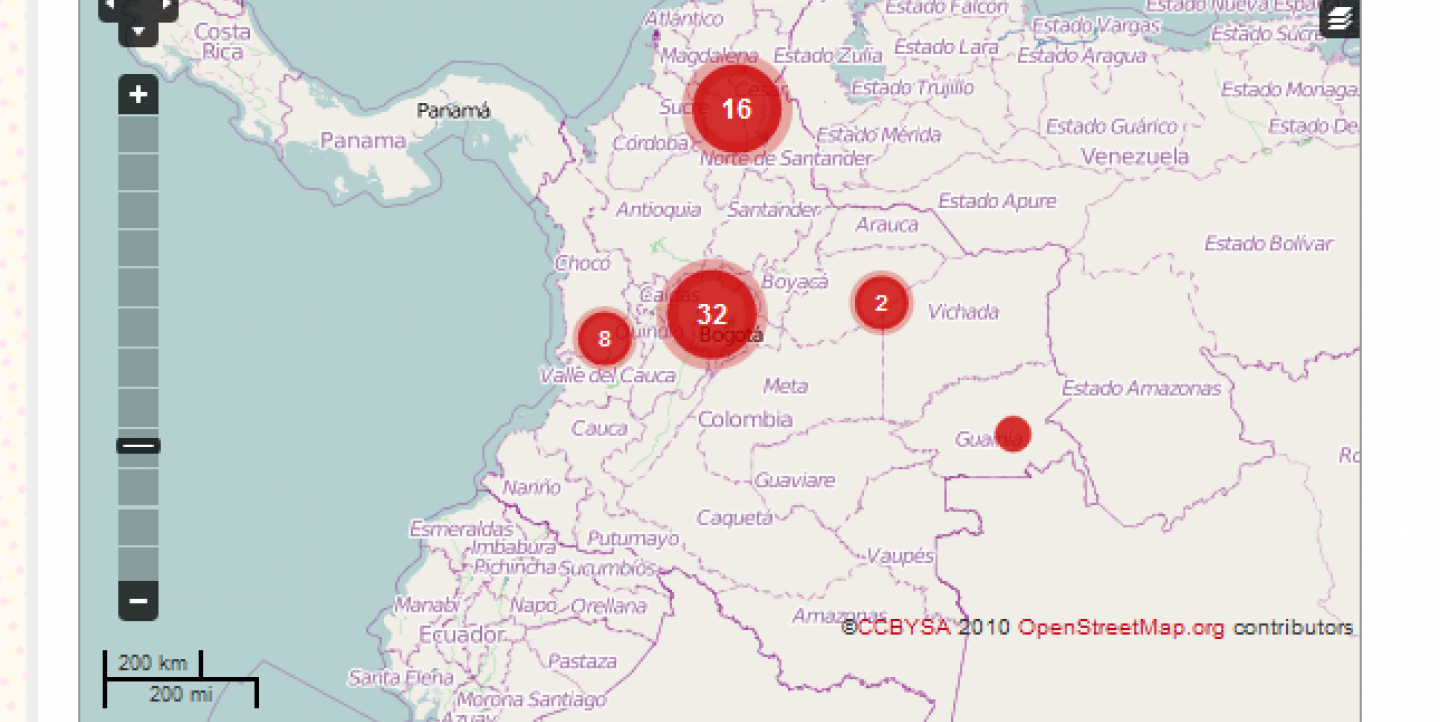A new visual guide will expose areas of corruption in Colombia, where misuse of funds, bribery and fraud are common.
The "Monitor de Corrupción" (or "Corruption Monitor") will give journalists and citizens the opportunity to digitally map reports of political misconduct. About 60 reports from journalists have been mapped since the project launched July 24. No citizen reports have been incorporated into the mix yet, but the map's administrative staff and journalists will confirm them once they are submitted.
"What makes our map unique in Colombia is our two-tiered reporting system that allows both journalists and citizens to submit reports about corruption in their communities, municipalities and on a broader scale, regionally and nationally," said Ronnie Lovler, a Knight International Journalism Fellow. Lovler created the mapping system with investigative journalism group Consejo de Redacción. The idea for the map grew out of a similar project of Knight International Journalism Fellow Jorge Luis Sierra.
Lovler said naming the map was a challenge, because it required a label that would be accurately descriptive in both Spanish and English. "Corruption Monitor" was translatable and is easy to find via search engines, she said.
The fellow approached Consejo’s administrative staff with her idea in January. It was then presented by the executive board to the annual members' assembly in March. The team then established 11 categories of corruption and developed the system using the Ushahidi mapping platform.
The project is also supported by the offices of the United Nations Organization for the Coordination of Humanitarian Affairs in Colombia and the Javeriana University.
To encourage public participation in the project, Lovler will offer citizen journalists hands-on training in workshops beginning in August at La Patria newspaper in Manizales.
“From the Arab Spring through the defeat of the proposed judicial reform in Colombia, we have seen how citizen movements have regained their dominant role in the democratic debate,” said Fabio Posado, president of the Consejo de Redacción.
Via ICFJ

